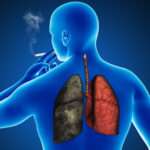Everyone knows the feeling of acid reflux or heartburn. Gastroesophageal reflux(1) (GER) is the name given by doctors to:
- acid indigestion
- acid reflux
- acid regurgitation
- heartburn
- reflux
GER happens when your stomach contents come back up into your esophagus. GER that occurs more than twice a week for a few weeks could lead to Gastroesophageal reflux disease (GERD). GERD affects about 20 percent of the U.S. population2. GERD can sometimes cause serious complications over time, such as inflammation of the esophagus and esophageal stricture. An esophageal stricture happens when your esophagus becomes too narrow. Esophageal strictures can lead to problems with swallowing. Respiratory problems can occur with GERD because you might breathe stomach acid into your lungs. The stomach acid can then irritate your throat and lungs, causing respiratory problems, such as:
- asthma—a long-lasting disease in your lungs that makes you extra sensitive to things that you’re allergic to
- chest congestion, or extra fluid in your lungs
- a dry, long-lasting cough or a sore throat
- hoarseness—the partial loss of your voice
- laryngitis—the swelling of your voice box that can lead to a short-term loss of your voice
- pneumonia—an infection in one or both of your lungs—that keeps coming back
- wheezing—a high-pitched whistling sound when you breathe
Causes of Gastroesophageal Reflux3
When you eat, food passes from the throat to the stomach through the esophagus. A ring of muscle fibers in the lower esophagus prevents swallowed food from moving back up. These muscle fibers are called the lower esophageal sphincter (LES).
When this ring of muscle does not close all the way, stomach contents can leak back into the esophagus. This is called reflux or gastroesophageal reflux. Reflux may cause symptoms. Harsh stomach acids can also damage the lining of the esophagus.
There are several risk factors for GER. These include obesity, pregnancy, smoking, and a Hiatal hernia. Some drugs commonly used by African Americans can cause GER, including:
- Anticholinergics (e.g., for seasickness) (Antivert)
- Beta-blockers for high blood pressure or heart disease (Coreg, Atenolol)
- Bronchodilators for asthma (Albuterol)
- Calcium channel blockers for high blood pressure (Norvasc, Cardizem)
- Dopamine-active drugs for Parkinson disease (Sinemet, Requip)
- Progestin for abnormal menstrual bleeding or birth control (Provera)
- Sedatives for insomnia or anxiety (Xanax, Ambien)
- Tricyclic antidepressants (Elavil)
Treatment of GERD
Avoid eating or drinking the following items that may make GER or GERD worse:
- chocolate
- coffee
- peppermint
- greasy or spicy foods
- tomatoes and tomato products
- alcoholic drinks
Proton Pump Inhibitors (PPI’s)
Proton-pump inhibitors(4) (PPIs) are a group of drugs whose main action is a pronounced and long-lasting reduction of gastric acid production. This group of drugs is among the most commonly prescribed medications in the United States with Nexium being in the top 5 in 2013-145.
- Omeprazole (Prilosec), also available over-the-counter (without a prescription)
- Esomeprazole (Nexium)
- Lansoprazole (Prevacid)
- Rabeprazole (AcipHex)
- Pantoprazole (Protonix)
- Dexlansoprazole (Dexilant)
- Zegerid (omeprazole with sodium bicarbonate)
Patients frequently overuse proton pump inhibitors (PPIs) for unapproved indications in place of more expensive and powerful agents, but this inappropriate PPI use can increase the risk of community-acquired pneumonia, Clostridium difficile diarrhea(6), hip fractures, and severe hypomagnesemia.
H2 Blockers
H2-receptor antagonists(7) were the first group of drugs used to reduce the amount of stomach acid secreted by glands in the lining of your stomach. They are some of the most popular over the counter medications used in America. They include:
- Famotidine (Pepcid AC, Pepcid Oral)
- Cimetidine (Tagamet, Tagamet HB)
- Ranitidine (Zantac, Zantac 75, Zantac Efferdose, Zantac injection, and Zantac Syrup)
- Nizatidine Capsules (Axid AR, Axid Capsules, Nizatidine Capsules)
H2 blockers are most often taken by mouth. You can get them in the form of tablets, liquids, or capsules.
- These medicines are most often taken with the first meal of the day. In some cases, you may also take them before your evening meal.
- It takes 30 to 90 minutes for the medicines to work. The benefits will last several hours. People often take the drugs at bedtime, as well.
- Symptoms may improve for up to 24 hours after taking the drug.
H2 blockers may be bought in lower doses at the store without a prescription. If you find yourself taking these most days for 2 weeks or more for acid reflux symptoms, make sure you see your health care provider about your symptoms.
If you have a peptic ulcer, your provider may prescribe H2 blockers along with 2 or 3 other medicines for up to 2 weeks.
If your provider prescribed these medicines for you:
- Take all of your medicines as your doctor told you to. Try to take them at the same time each day.
- DO NOT stop taking your medicines without talking to your provider first. Follow up with your provider regularly.
- Plan ahead so that you do not run out of medicine. Make sure you have enough with you when you travel.
Many people can manage the hardships caused by GERD with lifestyle changes like avoiding alcohol and spicy, fatty or acidic foods that trigger heartburn. Consult with your doctor if your symptoms are not improving.
Click this link to get free Health and Wealth information to improve your life. Play the free “Slow Roll Through Civil Rights” Game found on the Jay Harold website. Enjoyed this post? Share it and read more here.
Bibliography
- http://www.niddk.nih.gov/health-information/health-topics/digestive-diseases/ger-and-gerd-in-adults/Pages/overview.aspx
- http://www.niddk.nih.gov/health-information/health-topics/digestive-diseases/ger-and-gerd-in-adults/Pages/definition-facts.aspx
- https://www.nlm.nih.gov/medlineplus/ency/article/000265.htm
- https://en.wikipedia.org/wiki/Proton-pump_inhibitor
- http://www.medscape.com/viewarticle/829246
- https://www.nlm.nih.gov/medlineplus/clostridiumdifficileinfections.html
- https://www.nlm.nih.gov/medlineplus/ency/patientinstructions/000382.htm






